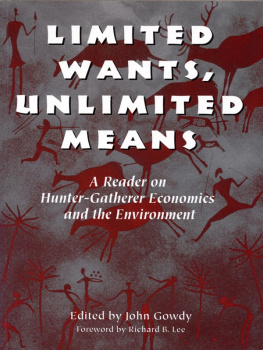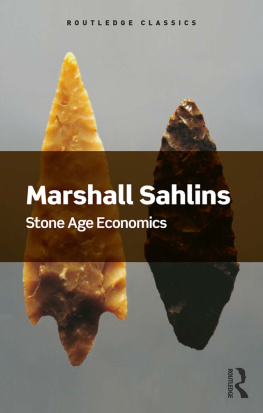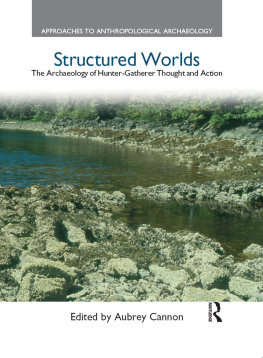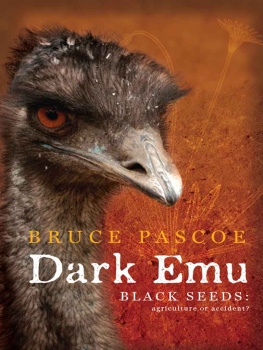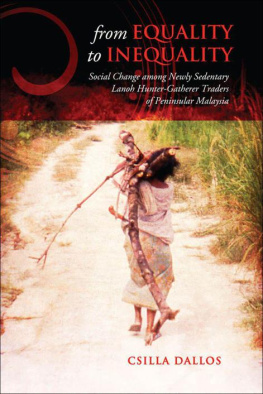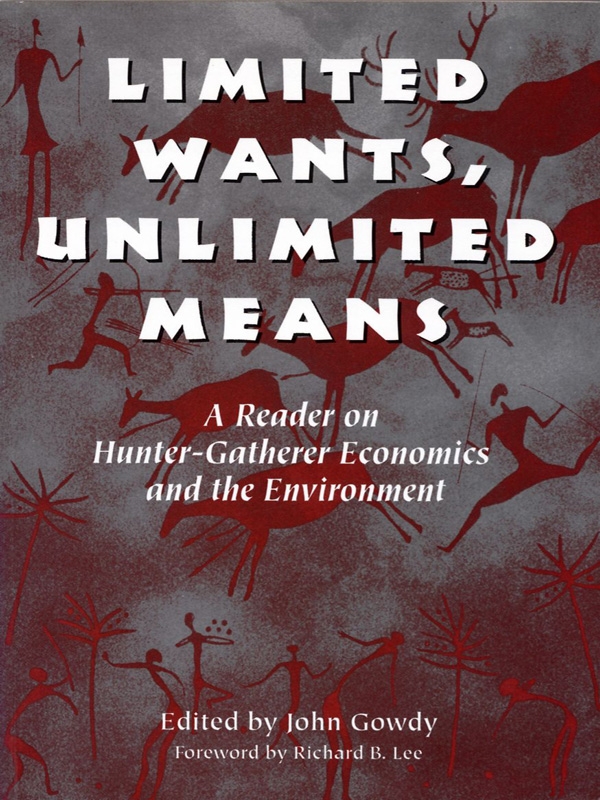About the Contributors
Nurit Bird-David is a lecturer in social anthropology at Tel Aviv University, Tel Aviv, Israel. Her research focuses on hunter-gatherer studies and economic anthropology. She has been a research fellow of New-Hall at Cambridge University and a Smutz Visiting Fellow at Cambridge University.
Ernest Burch, Jr. is a research associate in anthropology with the Smithsonian Institution, Washington, D.C. His main area of research is the native peoples of northern Alaska and the central subarctic Canada. He is co-editor, with Linda Ellanna, of Key Issues in Hunter-Gatherer Research (1994).
Tim Flannery is senior research scientist in mammalogy at the Australian Museum in Sydney. He is the author of several books about Australian mammals. He is the author of The Future Eaters: An Ecological History of the Australian Lands and People (1995).
Eleanor Leacock was professor of anthropology of the City College of New York and the Graduate Faculty of the City University of New York. She did pioneering work on the cross-cultural study of women, anthropology and education, and anthropological theory. Her books include The Montagnais Hunting Territory and the Fur Trade (1954), Teaching and Learning in City Schools: A Comparative Study (1969), Politics and History in Band Societies (1982), and Myths of Male Dominance (1982).
Richard B. Lee is professor of anthropology at the University of Toronto. He has studied the hunter-gatherers of southern Africa for three decades. He is coeditor, with Irven DeVore, of Man the Hunter (1968) and Kalahari Hunter-Gatherers (1976), and the author of The !Kung San (1979) and The Dobe Ju/Hoans (1993).
Lorna Marshall is an associate of the Peabody Museum, Harvard University and a leading authority on the !Kung of southern Africa. She is the author of The !Kung of Nyae Nyae (1976) and many important articles.
Marshall Sahlins is Charles F. Grey Distinguished Service Professor of Anthropology at the University of Chicago. His research interests are the history and ethnography of the Pacific. His books include Stone Age Economics (1972), Islands of History (1985), and How Natives Think (1995)
Paul Shepard was a leading environmental philosopher whose books include Man in the Landscape (1967), The Tender Carnivore and the Sacred Game (1973), Nature and Madness (1982), and Traces of an Omnivore (1996). He taught human ecology and natural philosophy at Pitzer College and the Claremont Graduate School.
James Woodburn is senior lecturer in the department of anthropology at the London School of Economics and Political Science. His main research interests are the comparative analysis of hunter-gatherer societies, especially those of sub-Saharan Africa, and economic anthropology.
John Yellen is program director for archaeology at the National Science Foundation.
John Zerzan is a freelance writer and social critic living in Eugene, Oregon. He is the author of Future Primitive and Other Essays (1994).
Island Press Board of Directors
CHAIR
Susan E. Sechler
Executive Director, Pew Global Stewardship Initiative
VICE-CHAIR
Henry Reath
President, Collectors Reprints, Inc.
SECRETARY
Drummond Pike
President, The Tides Foundation
TREASURER
Robert E. Baensch
Professor of Publishing, New York University
Peter R. Borrelli
Executive Director, Center for Coastal Studies
Catherine M. Conover
Lindy Hess
Director, Radcliffe Publishing Program
Gene E. Likens
Director, The Institute of Ecosystem Studies
Jean Richardson
Director, Environmental Programs in Communities (EPIC)
University of Vermont
Charles C. Savitt
President, Center for Resource Economics/Island Press
Victor M. Sher
President, Sierra Club Legal Defense Fund
Peter R. Stein
Managing Partner, Lyme Timber Company
Richard Trudell
Executive Director, American Indian Resources Institute
ONE
The Original Affluent Society
Marshall Sahlins
If economics is the dismal science, the study of hunting and gathering economies must be its most advanced branch. Almost universally committed to the proposition that life was hard in the Paleolithic, our textbooks compete to convey a sense of impending doom, leaving one to wonder not only how hunters managed to live, but whether, after all, this was living? The specter of starvation stalks the stalker through these pages. His technical incompetence is said to enjoin continuous work just to survive, affording him neither respite nor surplus, hence not even the leisure to build culture. Even so, for all his efforts, the hunter pulls the lowest grades in thermodynamicsless energy/capita/year than any other mode of production. And in treatises on economic development he is condemned to play the role of bad example: the so-called subsistence economy.
The traditional wisdom is always refractory. One is forced to oppose it polemically, to phrase the necessary revisions dialectically: in fact, this was, when you come to examine it, the original affluent society. Paradoxical, that phrasing leads to another useful and unexpected conclusion. By the common understanding, an affluent society is one in which all the peoples material wants are easily satisfied. To assert that the hunters are affluent is to deny then that the human condition is an ordained tragedy, with man the prisoner at hard labor of a perpetual disparity between his unlimited wants and his insufficient means.
For there are two possible courses to affluence. Wants may be easily satisfied either by producing much or desiring little. The familiar conception, the Galbraithean way, makes assumptions peculiarly appropriate to market economies: that mans wants are great, not to say infinite, whereas his means are limited, although improvable: thus, the gap between means and ends can be narrowed by industrial productivity, at least to the point that urgent goods become plentiful. But there is also a Zen road to affluence, departing from premises somewhat different from our own: that human material wants are finite and few, and technical means unchanging but on the whole adequate. Adopting the Zen strategy, a people can enjoy an unparalleled material plentywith a low standard of living.
Reprinted with permission from: Sahlins, Marshall, Stone Age Economics (New York: Aldine de Gruyter). Copyright @ 1972 by Marshall Sahlins.
That, I think, describes the hunters. And it helps explain some of their more curious economic behavior: their prodigality for examplethe inclination to consume at once all stocks on hand, as if they had it made. Free from market obsessions of scarcity, hunters economic propensities may be more consistently predicated on abundance than our own. Destutt de Tracy, fish-blooded bourgeois doctrinaire though he might have been, at least compelled Marxs agreement on the observation that in poor nations the people are comfortable, whereas in rich nations they are generally poor.
This is not to deny that a preagricultural economy operates under serious constraints, but only to insist, on the evidence from modern hunters and gatherers, that a successful accommodation is usually made. After taking up the evidence, I shall return in the end to the real difficulties of hunting-gathering economy, none of which are correctly specified in current formulas of paleolithic poverty.
Sources of the Misconception

